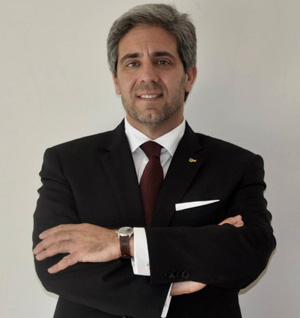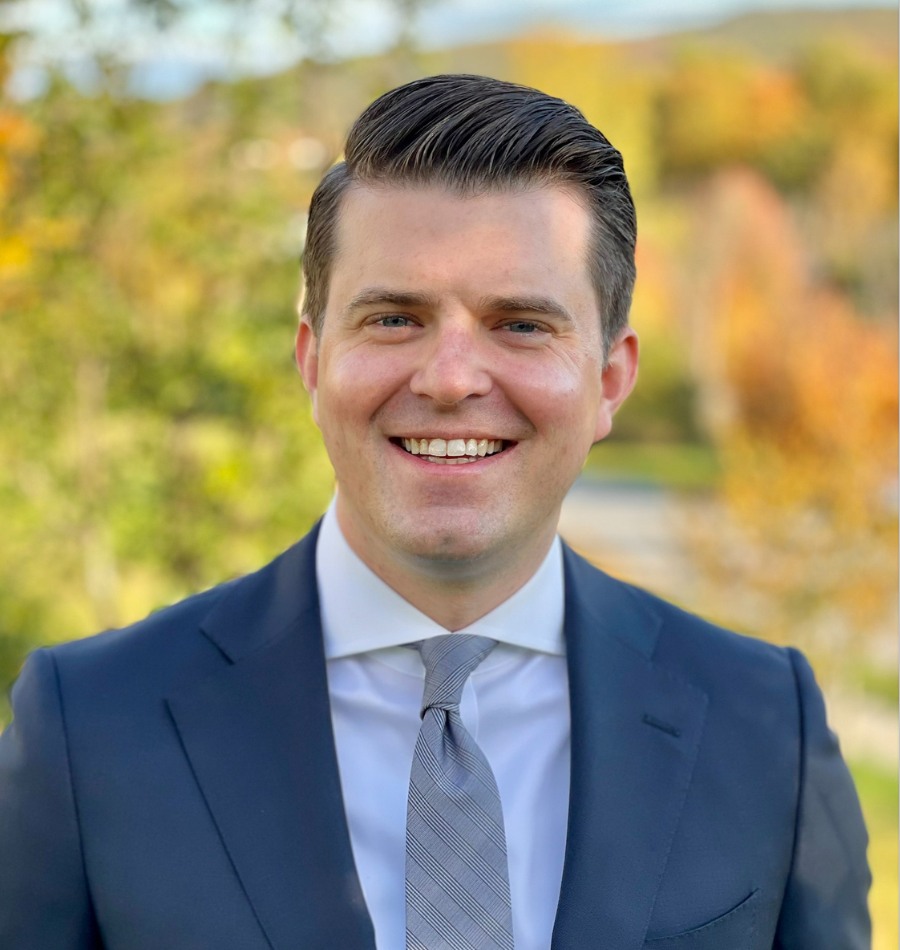Experts’ panel: Correctional staff training
Pedro das Neves, Carolina Pereira & Ana M. Nascimento
Professional qualifications are increasingly seen as indicators of a country’s social and economic development. As such, many professions have begun to recognise specific academic or professional certification levels, often increasing them to prepare professionals for future challenges.
The prison officers’ (PO) profession remains in a grey area, rooted in country-specificities, often socially trapped in old preconceptions about the activity while managing the demands of modern society.
In recent decades, the world has witnessed an increasing number of inmates. According to the World Prison Population List (Fair & Walmsley, 2021), the total number of incarcerated people is higher than 10.77 million and may well be more than 11.5 million.
In Europe alone, there are 1,528,343 citizens in custody (Aebi & Tiago, 2021). Around 368.805 prison officers (including staff solely dedicated to custody and other staff) are at work with responsibilities for inmates’ safety and social reintegration. They work in a largely challenging and under-resourced environment throughout the 52 prison administrations in the 47 Council of Europe member states (Aebi & Tiago, 2021).
Prisons play an essential role in society, vital to human and public security. The Council of Europe (2006) states that the duties of prison staff go beyond security and safety and involve playing a part in the reintegration of prisoners into society after the completion of their sentence through a programme of positive care and assistance, and in harmony with the Nelson Mandela Rules (UNODC, 2015), the Bangkok Rules (UNODC, 2010) and the United Nations Rules for the Protection of Juveniles Deprived of their Liberty (UN, 1990), depending on each working context.
POs are key to bringing about desired changes at this rehabilitation level, but they need comprehensive and accessible training to implement those changes (UNODC, 2011).
When performing their duties, these professionals deal with old and new problems: a) the prison population worldwide is ageing at an unprecedented rate (Psick, Simon, Brown & Ahalt, 2017; UNODC, 2010); b) most prisons are overcrowded since severe overcrowding is a feature of prison systems across much of the world (Fair & Walmsley, 2021); c) an increase in radicalisation and violent extremism in prisons worldwide (Ahmed, 2015); and, d) organised crime, which can be initiated and become embedded in the routine activities of prison life (Treadwell, Gooch & Perry, 2019). These problems, among others, lead to the overall degradation of inmates’ social and mental health and an increase in dangerous behaviour.
At another level, research has documented that the public, in general, views corrections work, particularly the PO role, as undesirable. Historically, the sector has had little direct contact with the public (Russo, Woods, Drake and Jackson, 2018), feeding such negative ideas, leading to understaffing in most prisons, and making it more challenging to promote rehabilitation.
As the Osnabrück Declaration states, the pandemic, digitalisation, and climate change are significantly impacting the economy, employment, and society.
These problems are enhanced as social and technological evolution place substantial pressure on the system due to their global character that diminishes borders and promotes mobility much faster than many traditional institutions are ready to absorb and adapt. This situation is no different in prisons.
Training can be a crucial element since inadequately trained staff may be more likely to engage in inappropriate behaviour, underperform, or leave because of lack of engagement (Russo, Woods, Drake & Jackson, 2018). In this context, Vocational Education and Training (VET) is required to respond to these challenges, the growing demand for digital skills and the increasing need for ongoing upskilling and reskilling throughout a person’s working life. VET is considered “an enabler of innovation and an essential foundation for green, digital and sustainable growth” (European Parliament, 2017).

The European Parliament (2017) acknowledges that prison staff must have conditions of employment suitable for the demanding nature of their job, including better initial and continuous training and respective adequate funding, decent and appropriate working conditions, sharing best practices, and proper staff levels.
The European Commission (through ESCO) reinforces this acknowledgement by stating that prison services should have specific initial and advanced training curricula addressed to different staff categories and the particularities of their jobs.
Joint training opportunities for prison and probation staff and other criminal justice agencies should exist to foster interagency and interdisciplinary approaches.
However consensual these dispositions may seem, their implementation is not without obstacles and difficulties.
A closer look at the present situation shows that, as well as workplace challenges, social challenges and political recognition, other issues play an essential role in PO professional training. Currently in Europe, recruitment and selection, type and length of initial training, and professional certificate levels differ from country to country.
Formal training can be as short as fifty days, or as long as three years or university-level degree. The above scenario presents the PO profession and training with a wide range of challenges that must be considered and reflected upon to find integrated international solutions. In this regard, it is possible to find some international instruments, such as the professional recognition presented at the ESCO and the Council of Europe (CoE, 2019) list of 22 recommended items that should be part of any given training course.
The CoE guidelines stress that education and training should promote professional identity and develop the organisation’s culture according to the overall mission, because “training needs exist to help the correction system develop adequate training to meet its objectives.”
Additionally, any training programme must focus on the needs of its target audience in order to achieve its goals. Therefore, the CoE recommends an annual re-evaluation of training needs, with regular revisions and training updates to ensure staff development and secure an appropriate number of trainers and resources.

A recent case study1 involving four countries (Belgium, Portugal, Romania and Germany) showed that POs carry out similar duties requiring equivalent knowledge, skills, and competencies despite national differences. Four primary responsibilities stood out:
• The first regards guaranteeing safety and order in prisons and integrating all activities concerning monitoring the facilities, entrances and exits.
• The second regards inmate management and is focused on dynamic security, building a professional relationship with inmates, integrating supervision and rehabilitation. It also includes ensuring good prison order whilst motivating inmates towards rewarding activities and handling delicate situations such as mental health cases, suicide attempts, ageing inmates, radicalisation, and organised crime.
• The third is related to administrative procedures and includes the correct reporting of events to the appropriate hierarchic channels.
• Finally, the fourth regards PO wellbeing and professional development, associated with maintaining an emotional balance performing an arduous and high-risk job.
More comprehensive research supported the same results, considering the available information on 25 European countries2. These results indicate that every country is or will be facing the same challenges, albeit to different extents. This research also focussed on the needs and competencies perceived as necessary by the PO. From a set of twenty-two skills, ranging from ICT abilities, emotional and relational competencies, critical personal skills and communication skills, when questioned about each skill, POs displayed some agreement about the skills they considered essential to be developed.
The most highlighted skills were those connected to creating a better relationship with inmates and responding to a challenging situation without using force.
POs also considered as essential skills: a) maintaining professionalism and fairness; b) coping with difficult emotional situations; c) communicating effectively with prisoners and others to maintain order in prison; d) understanding how behaviour, communication and interpersonal skills affect an individual’s expectation; and, e) being a pro-social model. These findings evidence that POs are well aware of the importance of their role as social models in inmates’ life and their rehabilitation.
The study also revealed high disparities between the importance of certain training themes and POs’ perception of their inclusion in their training.
POs regarded the prison service’s mission, legal frameworks impacting daily prison routines, dynamic security and the relationship with inmates, professional ethics, and staff support and development as critical. However, they reported that these themes were poorly expressed in training, discrepancies that suggest that the themes should have a higher level of inclusion in basic training.

This study also explored methods in both initial and continuous training. The results show that there is still a high dependency on classroom-based sessions in both cases.
For instance, ICT and new digital training technologies, such as e-learning or virtual and augmented reality, are not sufficiently applied in prisons. Traditional training could be replaced by or be complemented with online training, offering a cost-effective strategy (Russo, Woods, Drake & Jackson, 2018) while enhancing the development of digital competencies among prison officers.
Training can act as a quality tool for the system and professionals, provided that both the professional and their activity are dignified, both in the eyes of wider society and among the professional corps itself. Nevertheless, it is fair to say that training, in this context, poses a higher level of complexity to the providers due to the previously mentioned new and old problems.
Furthermore, it is necessary to tackle any resistances to practices already in place, since training can be a solid enabler of POs’ future. Notwithstanding, training carries several challenges.
First, training must address the unbalanced perception between prison’s twin roles of security and rehabilitation, creating a PO professionality that embraces both aspects. Tackling this problem may involve rethinking the content of themes, considering professional ethics and prison mission and highlighting any activities common to each mission, both in specific themes and training activities.
Secondly, academic and professional certificate levels, considered entry or exit levels, must be evaluated and integrated into each national context’s educational or professional training systems. This means that courses should be designed considering the certification requirements in place or the possibility of establishing partnerships with other education and training institutions that provide complementary training to achieve a minimum certification level.
Thirdly, although national specificities are central to the training, a core set of competencies, or training themes, are internationally standardised. There should be an effort to acknowledge this formally. This core set of training themes should also be designed following flexible but commonly accepted guidelines.
These themes should emphasise static and dynamic security, human rights, rehabilitation and professional ethics, and consider inmates’ wellbeing (mental, social and physical), sustainability, and the use of ICT and digital tools in prison environments.
Special attention should also be given to PO wellbeing (mental, social and physical).
Lastly, although training is critical, it is not the only answer needed to overcome the challenges presented above. Therefore, action is needed to tackle the unattractiveness of the profession, creating a positive social view of it. It is crucial to consider whether each national system can provide a desirable career development path. For the community, it is essential to use professional marketing strategies to provide a positive social view of the PO profession.
1 The case study was developed during 2021, within the European Prison Officers for the 21st Century project (PO21), a European funded initiative which aims to develop a transnational curriculum for the professional training of prison officers.
2 The report on 25 countries was developed in the scope of the European Prison Officers for the 21st Century project (PO21).
References
Aebi, M. & Tiago, M. (2021). Prison Populations. SPACE I. Council of Europe & University of Lausanne.
Ahmed, M. (2015). Prison Radicalisation in Europe. Tony Blair Institute for Global Change.
Council of Europe (2006). European Prison Rules. Council of Europe.
Council of Europe (2019). Guidelines regarding recruitment, selection, education, training and professional development of prison and probation staff.
ESCO – Occupations – European Commission. ec.europa.eu/esco/portal/occupation
European Parliament (2017). Prison systems and conditions European Parliament resolution of 5 October 2017 on prison systems and conditions (2015/2062(INI)).
Fair, H. & Walmsley, R. (2021). World Prison Population List. Institute for Crime & Justice Policy Research. Birkbeck, University of London.
Psick, Z., Simon, J., Brown, R., & Ahalt, C. (2017). Older and incarcerated: policy implications of aging prison populations. International journal of prisoner health, 13(1), 57–63.
Russo, J., Woods, D., Drake, G. & Jackson, B. (2018). Building a High-Quality Correctional Workforce: Identifying Challenges and Needs. Criminal Justice Needs Project. National Institute of Justice award number 2013-MU-CX-K003.
Treadwell, J., Gooch, K. & Perry, J. (2019). Crime in Prisons: Where now and where next? Report commissioned by Staffordshire commissioner, West Midlands Police and Crime Commissioner, John Campion Police and Crime Commissioner and Philip Secombe Police and Crime Commissioner.
UN (1990). United Nations Rules for the Protection of Juveniles Deprived of their Liberty. General Assembly Resolution 45/113 of 14 December 1990.
UNODC (2010). Handbook for prison leaders. A basic training tool and curriculum for prison managers based on international standards and norms. Criminal Justice Series. United Nations Office on Drugs and Crime, p. 82.
UNODC (2010). The Bangkok Rules. United Nations Rules for the Treatment of Women Prisoners and Non-custodial Measures for Women Offenders with their Commentary. United Nations Office on Drugs and Crime.
UNODC (2011). Training Policy and Curriculum. United Nations Office on Drugs and Crime.
UNODC (2015). The United Nations Standard Minimum Rules for the Treatment of Prisoners (the Nelson Mandela Rules). United Nations Office on Drugs and Crime.

Pedro das Neves
Pedro das Neves is CEO at IPS Innovative Prison Systems / ICJS Innovative Criminal Justice Solutions Inc. He has worked in criminal justice reform for twenty years. He holds a degree in Sociology and a master’s degree from the College of Europe in Bruges, Belgium. Mr das Neves was awarded the ICPA Correctional Excellence Award (Management and Staff Training) in 2017 and he has been a member of the ICPA Board of Directors since October 2018. In 2021 he was appointed a member of the European Commission Expert Group on European Judicial Training.
Carolina Pereira
Carolina Pereira coordinates the Correctional Staff Training & Development Portfolio of projects at IPS Innovative Prison Systems / ICJS Innovative Criminal Justice Solutions Inc. She has a bachelor’s and a master’s degree in Educational Sciences and a PhD in Education from the University of Lisbon, Portugal.
Ana M. Nascimento
Ana M. Nascimento is a senior researcher and Consultant at IPS Innovative Prison Systems / ICJS Innovative Criminal Justice Solutions Inc., integrating the Correctional Staff Training & Development Portfolio. She has a bachelor’s degree in Educational Sciences, a master’s degree in Adult Education and Training, and a PhD in Educational Policy and Administration.
Discover a project




